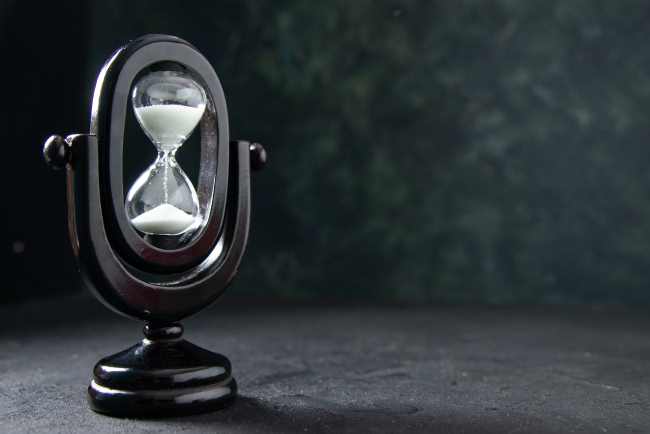Post Date: April 13, 2023
Embarking on a journey of self-discovery is no easy feat, but it is an essential step towards finding your true self. It is important to start with calmness and patience, recognizing both consistent and inconsistent actions that contribute to your personality. Developing impartiality and fairness towards oneself is also crucial. To truly know oneself, one must be their own judge and ask if their opinions are true.
The Journey To Find Your True Self
Highlighting personal strengths and trying different fields also help in the journey towards self-discovery. Self-knowledge is defined as awareness of one’s strengths, weaknesses, values, and beliefs. Psychology and philosophy perspectives can help in this journey as well. The journey to finding one’s true self requires gradual change and development, beginning with confronting oneself and leading to self-realization. It involves practical steps and a willingness to ask tough questions to truly understand oneself. So, let us explore some strategies for finding your true self.
To become familiar with one’s true identity, there are 8 strategies that must be taken:
1. Trying different fields
Trying different fields and exploring various opportunities can be a great way to discover one’s true self. It’s not uncommon for people to spend years doing something that they are not passionate about, but it’s never too late to make a change. By trying different fields, one can learn what they truly enjoy doing and what aligns with their values and personality.
You may be curious about how simple it is to make changes.
The truth is: It may take time and effort, but the journey towards self-discovery can be fulfilling and life-changing. It’s important to remember that there’s no right or wrong path – the key is to explore and experiment until the right fit is found. So, go ahead and try out that new hobby, take an online course or attend workshops in different fields – who knows, it may lead to something amazing!
2. Being your own judge
Finding one’s true self can be a challenging task, but being your own judge can be the key to unlocking that process. By taking responsibility for one’s own thoughts, emotions and actions, an individual can pave the way towards self-discovery and personal growth. It is important to approach this process with a friendly tone of voice, to be kind and compassionate towards oneself. Instead of judging oneself harshly, an individual can learn to reflect on their experience, identify areas of improvement, and set realistic goals.
3. Highlighting your strengths
Discovering your true self is essential in today’s world, and highlighting one’s strengths is a crucial step towards achieving it. Many people tend to focus on rectifying their weaknesses, neglecting their unique talents and attributes. By bringing attention to your strengths, you can unleash your full potential and create a bigger and better difference. Strengths are defined as personality traits or skills that are positive, including knowledge, attributes, talents, and skills. By identifying your strengths, you can use them to your advantage in various aspects of life. A good tip is to instill positivity by assigning interesting projects, offering ownership, and praising progress. So, it’s essential to take the time to discover your strengths and use them as a means of finding your true self. Remember that by improving oneself, you improve your likelihood of success.
4. Evaluate your relationships with others
Knowing oneself is crucial in developing relationships. It becomes evident that you can never truly comprehend another person until you have delved into your own self-discovery. Therefore, the value of self-awareness cannot be underestimated.
By reflecting on yourself, you can conquer your biggest fears. Once you truly understand your own identity, your purpose and goals will become more important than your worries. Knowing yourself better will also give you more time to focus on achieving things instead of getting stuck in a cycle of worry. Recognizing and utilizing your strengths will provide the momentum necessary to create a more significant impact on the world.

5. Starting with calmness and patience
Starting the journey to find one’s true self is a process that requires patience and calmness. It is not an overnight process, but rather a journey that requires time, effort, and self-reflection. Before diving into the process, it is important to understand the importance of self-discovery and recognizing consistent and inconsistent actions in life. One can start by developing impartiality and fairness towards oneself and others.
Trying different fields and being your own judge can also help in discovering your true self. Psychology and philosophy perspectives on self-knowledge provide valuable insights into the process of discovering oneself. Mindfulness meditation exercises can be a great starting point to develop calmness and patience. When one is in touch with their true self, highlighting their strengths and weaknesses becomes easier.
6. Discover your areas of interest and passion.
Pursuing any kind of passion is a great idea, and it’s important to acknowledge it when it arises because it shows an aspect of life that you should give more focus to. If we’re talking about following your passion in the workplace, then that’s a good thing. Additionally, having more excitement towards life is also beneficial. If you concentrate on your interests and get to know yourself better, you’ll have a bigger impact. Pursuing your passions motivates you to work, and persisting in your efforts produces outcomes that enhance your comprehension of who you truly are.
7. Developing impartiality and fairness
Developing impartiality and fairness is vital for individuals to find their true selves. It involves being objective and unbiased towards oneself and others. Impartiality and fairness enable individuals to make rational decisions and perceive situations accurately, without being clouded by personal bias or prejudice. By practicing these values, one can cultivate a sense of inner peace and harmony, as they strive to treat others with the same level of respect and fairness that they desire for themselves. Developing impartiality and fairness is not an easy feat but requires constant self-reflection and a willingness to acknowledge and address one’s own biases. This process can be challenging, but it can lead to personal growth and ultimately help individuals rediscover their true selves.
8. Request for opinion or evaluation
If you are unaware of your own strengths and weaknesses, it can be helpful to listen to others’ opinions about you. Request that they answer two fundamental inquiries: “What areas do you think I should enhance?” and “Which of my weaknesses do you think I need to address?”
It is important to understand that although someone else’s opinion may not be perfect, it can still be useful in highlighting aspects of ourselves that we may have overlooked. This is especially valuable for individuals struggling with self-discovery. Those who are closest to us often have insight into our character that we may not recognize on our own.
Ultimately, finding your true self is a journey that requires self-awareness, patience, and actions that align with your authentic self.
Starting right away and actively taking steps towards finding your true self.






